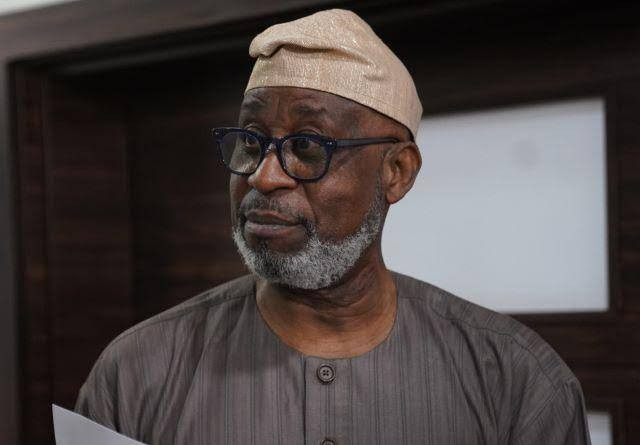The Federal Government has given the green light for an additional 350 mining marshals to be deployed to different parts of the country to better protect the nation’s mineral resources.
Minister of Solid Minerals Development, Dele Alake, emphasized that the deployment of more operatives to the mining marshals reflects the government’s dedication to reforming the mining sector.
Earlier this year, the government inaugurated the first group of 2,220 mining marshals to secure mining sites.
According to Segun Tomori, the minister’s special assistant on media, over 200 individuals involved in illegal mining have been apprehended, with 133 prosecutions in progress, and illegally mined minerals seized and forfeited to the federal government.
During the Passing Out Parade for the new operatives at the NSCDC headquarters in Abuja, the minister, represented by Permanent Secretary Mary Ogbe, commended Interior Minister Olubunmi Tunji-Ojo and the Nigeria Security and Civil Defence Corps for their collaboration in combating illegal mining.
The minister also pointed out the achievements of the mining marshals, stating that their efforts have significantly reduced illegal mineral transportation and the activities of unlicensed operators across the country.
NSCDC Commandant-General, Abubakar Audi, disclosed that the newly trained operatives completed an intensive 8-week training program to support the operations of mining marshals and intensify efforts against illegal miners throughout the country.
This commitment was conveyed in a statement released by Idowu Jokpeyibo, Head of Corporate Communications, following a training workshop designed to enhance the capabilities of Nigerian geoscientists in utilizing remote sensing technology for geological mapping and mineral exploration.
The one-day workshop, held at the SMDF office in Abuja, was attended by technical staff from SMDF and other technical officers from the Ministry of Solid Minerals Development and its affiliated agencies, including the Council of Nigerian Mining Engineers and Geoscientists.
In a workshop led by an expert in image processing, Neil Pendock, participants gained extensive knowledge about the use of remote sensing technology. Pendock highlighted the cost-saving benefits of this technology, which is already utilized by leading mining nations such as Australia, Canada, and South Africa.
He emphasized that training in remote sensing for Nigeria's solid minerals sector would result in high-quality geoscience data, positioning the country as a global hub for mining investment.
He emphasized the time and cost-saving advantages of using remote sensing imagery for mineral exploration compared to traditional methods.
Pendock stressed that this technology could effectively address Nigeria's illegal mining challenges by remotely capturing activity images via satellite.
He also urged the government to prioritize environmentally friendly mining practices to attract investment.
Pendock highlighted the significance of thermal data in geological mapping for identifying mineral deposits hidden beneath vegetation.




















